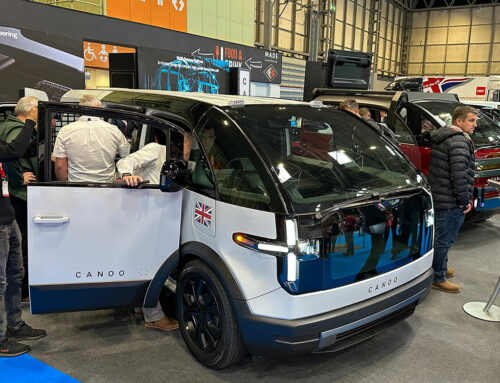The ULEZ standard is:
- Euro 3 for motorcycles
- Euro 4 for petrol cars, vans and minibuses
- Euro 6 for diesel cars, vans and minibuses
- Euro VI for lorries, buses and coaches
REVISED London low emission curbs plans by London Mayor Sadiq Khan, to bring forward the introduction of the Ultra-Low Emission Zone (ULEZ) for vans in Inner London, and its speed-up expansion to Greater London for lorries as well as cars and vans, have been criticised by the Freight Transport Association (FTA).
The existing plan is to introduce a ULEZ in the same area as the Congestion Charge zone by 2020, but the Mayor wants to accelerate the introduction and expansion of the zone to Greater London for lorries, buses and coaches as well as vans.
Under the proposals, a London-wide Euro VI requirement for lorries could now be introduced in 2019, while older vehicles – pre-2006 – could face a surcharge as early as next year.
The latest phase of the consultation gives Londoners the opportunity to have their say on the preferred date for the start of an expanded Ultra Low Emission Zone – which is out to the North/ South circular for cars, motorcycles and vans, and in central London for buses, coaches and lorries.
Existing ULEZ proposals
- From September 2020, all cars, motorcycles, vans, minibuses, buses, coaches and heavy goods vehicles (HGVs) will need to meet ULEZ exhaust emission standards or pay a daily charge when travelling in central London.
- The area covered by the ULEZ is the same as the current Congestion Charge Zone (CCZ) but will operate 24 hours a day, every day of the year, including weekends and public holidays.
- The ULEZ standards are in addition to any Congestion Charge or Low Emission Zone (LEZ) charges already applied.
- The ULEZ will cover the same area as the Congestion Charge zone, identified by road signs. There will be no barriers or toll booths.
- Cameras will read vehicle number plates as they are driven within the zone to check against the DVLA database.
Options include as early as 2019 to 2021 or later. Depending on feedback the Mayor will ask TfL to develop these potential options into detailed statutory proposals for consultation next year.
The proposed Emissions Surcharge (T-charge) would apply to older polluting vehicles driving into the Congestion Charge zone from October 2017. This charge would be in addition to the Congestion Charge and would apply to vehicles that do not meet the Euro 4/IV emissions standard for NOx and PM emissions.
Pre-Euro 4 vehicles are generally those registered up to and including 2005. The charge, costing £10 per day for non-compliant vehicles, would operate at the same times as the Congestion Charge (Monday to Friday, 07:00 – 18:00).
The Mayor has also called on Government to put in place a national diesel scrappage scheme to help people replace vehicles affected by the proposals. There was overwhelming support for this in the first round of his consultation. He also wants fiscal incentives, like vehicle excise duty, to be reformed so they support the Mayor’s proposals and encourage people to own and use the cleanest vehicles.
To further support the ULEZ, TfL will ensure all double decker buses operating in the ULEZ will be hybrid and all single decker buses will be fully electric or hydrogen.
FTA had previously warned that the ULEZ was only ‘do-able’ if the central London area and the 2020 deadline for HGVs stayed the same, and stated that if either were to be altered due to a change of Mayor, it would cause serious difficulties for businesses.
In July the Mayor launched a major public consultation on his plans. FTA’s head of national and regional policy Christopher Snelling commented: “We stated before that the central ULEZ starting in 2019 and expanding in 2020 would cause significant issues – especially in the van sector where there will only be two-and-a-half to three years’ worth of compliant vehicles in the fleet.
“Typically, operators who rely on second-hand vehicles buy at four years old so it will place significant cost burdens on them.”
Now the Mayor has suggested that the expansion to inner London for vans and Greater London for HGVs could happen in 2019. Mr Snelling added: “Bringing this further forward only adds to the cost on small businesses. Those using, or relying on, vans in inner London will now face a situation where there are no second hand vehicles available to purchase.”
ULEZ penalties
- If the vehicle does not meet the ULEZ emissions standards and the daily charge is not paid, a Penalty Charge Notice (PCN) will be issued payable by the registered owner or operator.
- This penalty is in addition to any CC or LEZ penalties received.
- For motorcycles, cars, vans and minibuses this will be £130 (reduced to £65 if paid within 14 days). For HGVs, coaches and buses this will be £1,000 (reduced to £500 if paid within 14 days).
FTA estimates that to comply with these proposals will cost the average small operator with five vans more than £100,000 extra up front – more than 150% of the company’s annual turnover. Therefore, this regulation could lock some small businesses out of the London market altogether.
Mr Snelling concluded: “No-one disputes the need to improve air quality. Once again what we do object to is the one-sided nature of these measures – all burden and no support.
“London could improve air quality more quickly and reduce the burden on businesses at the same time by offering a temporary discount to the Congestion Charge for compliant vehicles prior to the ULEZ starting. The Government has said it has no interest in a scrappage scheme and we see no prospect of that changing.”
It is the concern over the effect on small businesses and need for this support that FTA will be putting forward in its response to the consultation.
To view the consultation, visit www.london.gov.uk/cleanair







Leave A Comment